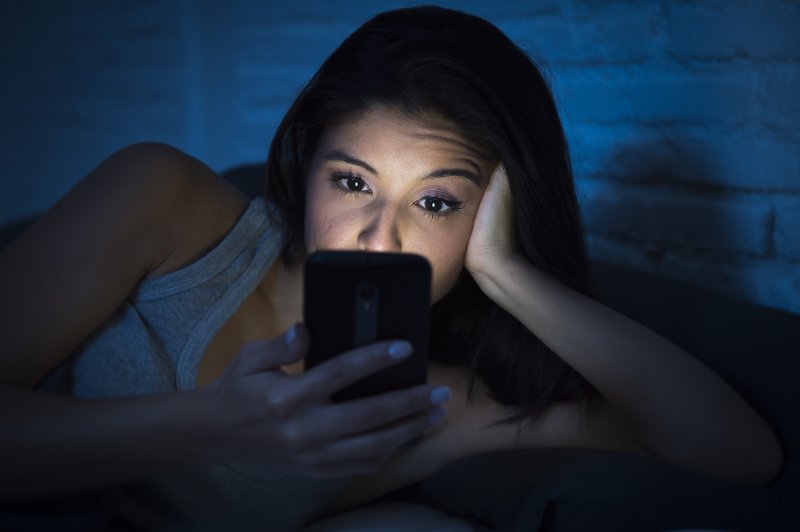
Are you satisfied with the sleep you’re getting every night? There are many factors that could be causing the quality of your rest to suffer, such as sleep apnea. But one contributor that you might not have even thought of could be the amount of time you spend on your phone, laptop, or other devices just before bed. You might think they’re helping you wind down after a long day, but they could actually be interfering with your body’s ability to get a proper amount of sleep. Read on to see why turning your phone off early could help you enjoy more peaceful nights of quality sleep.
How Electronic Devices Affect Sleep?
Cell phones and other devices with electronic screens emit blue light, which disrupts the brains ability to produce melatonin. This is actually a natural occurrence; the sun emits blue light as well. The idea is that once melatonin production stops, your brain interprets it as a signal to wake up. However, when you use electronic devices right before bed, it actively interferes with the natural sleep cycle. Not only will it be harder for you to fall asleep, but you’ll also have trouble staying asleep. This is especially problematic for anyone who already has a sleep disorder, as it will only make the effects worse.
What Can You Do About Blue Light?
If you don’t want blue light interfering with the quality of your sleep, then the answer is simple: minimize the amount of blue light you’re exposed to. It’s recommended that you turn off all electronic devices at least one hour before bed. If you need something to do to pass the time, read a book or a magazine instead; you can even do a simple activity like light cleaning or writing in a journal.
Of course, there will be times where you won’t be able to avoid looking at a screen before you need to go to bed. You might want to look into getting orange-tinted glasses for these situations. The lenses will help lessen the impact of the blue light you’re exposed to. For the best results, you should start wearing them several hours before bed. Note that while these glasses can help, avoiding screen time as much as possible is always the more effective solution.
What About Sleep Disorders?
If sleep apnea is also interfering with your rest, you’ll need to have it treated as soon as possible. Get in touch with a sleep dentist to ask about oral appliance therapy and other potential options.
Whether it’s limiting your exposure to blue light or having treatment done for your sleep disorder, it’s important to do whatever you can to get the quality sleep you need to fully enjoy life.
About the Author
Dr. Conditt has over 35 years of dental experience and currently uses his expertise to help his patients overcome sleep apnea – a condition that he’s personally suffered from. He is board certified in dental sleep medicine and has spent many hours studying sleep disordered breathing so that he can offer the highest quality treatment possible. To schedule a consultation to discuss the quality of your sleep, visit his website or call (817) 527-8500.
